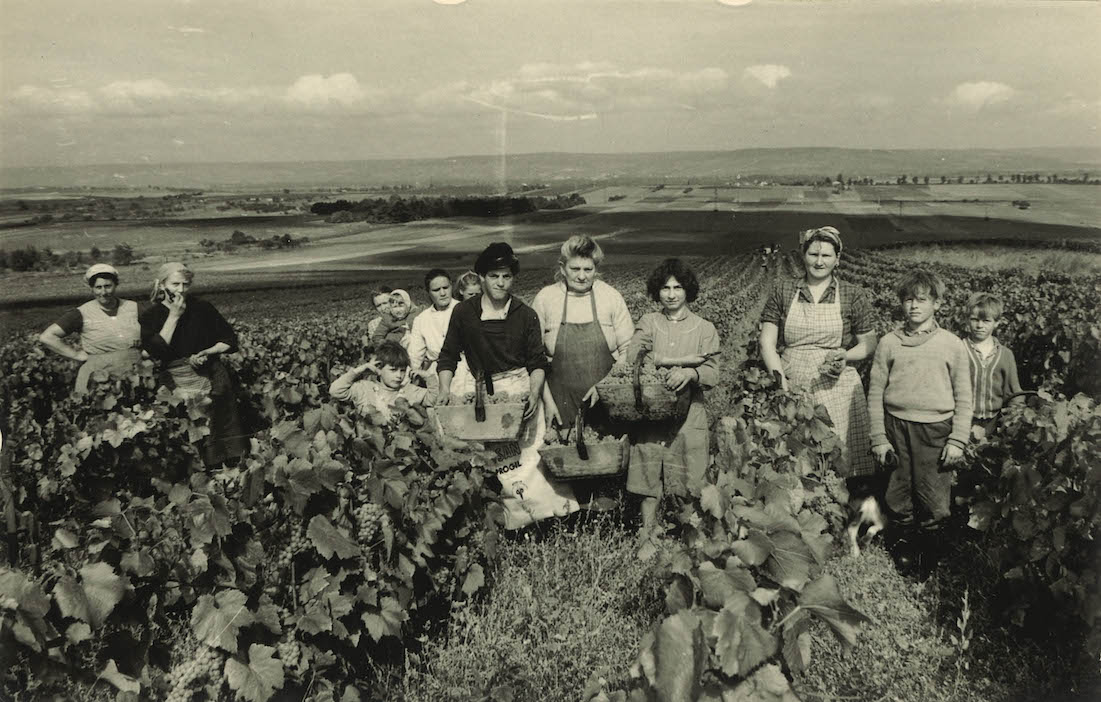“Champagne AR Lenoble is one of the rare 100% family-owned, 100% independent houses left in Champagne. Six years ago, I had the good fortune to be invited to join AR Lenoble as the house’s first export and international communications director,” writes Christian Holthausen.
Trying to put COVID-19 into an historical perspective
AR Lenoble was founded exactly 100 years ago in 1920 by Armand-Raphael Graser. After being managed by his son Joseph Graser from 1947 – 1973, and then by his grandson Jean-Marie Malassagne from 1973 – 1993, the estate has been looked after by his great-grandchildren, sister-and-brother Anne and Antoine Malassagne, the fourth generation of the family, since 1993.
Since AR Lenoble was founded in 1920, we have never had a single investor of any kind involved in the business. For 100 years, the estate has remained independent, allowing us to consistently have complete control over our own decisions. We are not subjected to the pressure for short-term profitability or the whims of shareholders like so many of our neighbours.
We are a very small team of only 11 people, including our vineyard team looking after our 18 hectares and our team in the cellar. Every single one of us is based at the estate in Champagne.
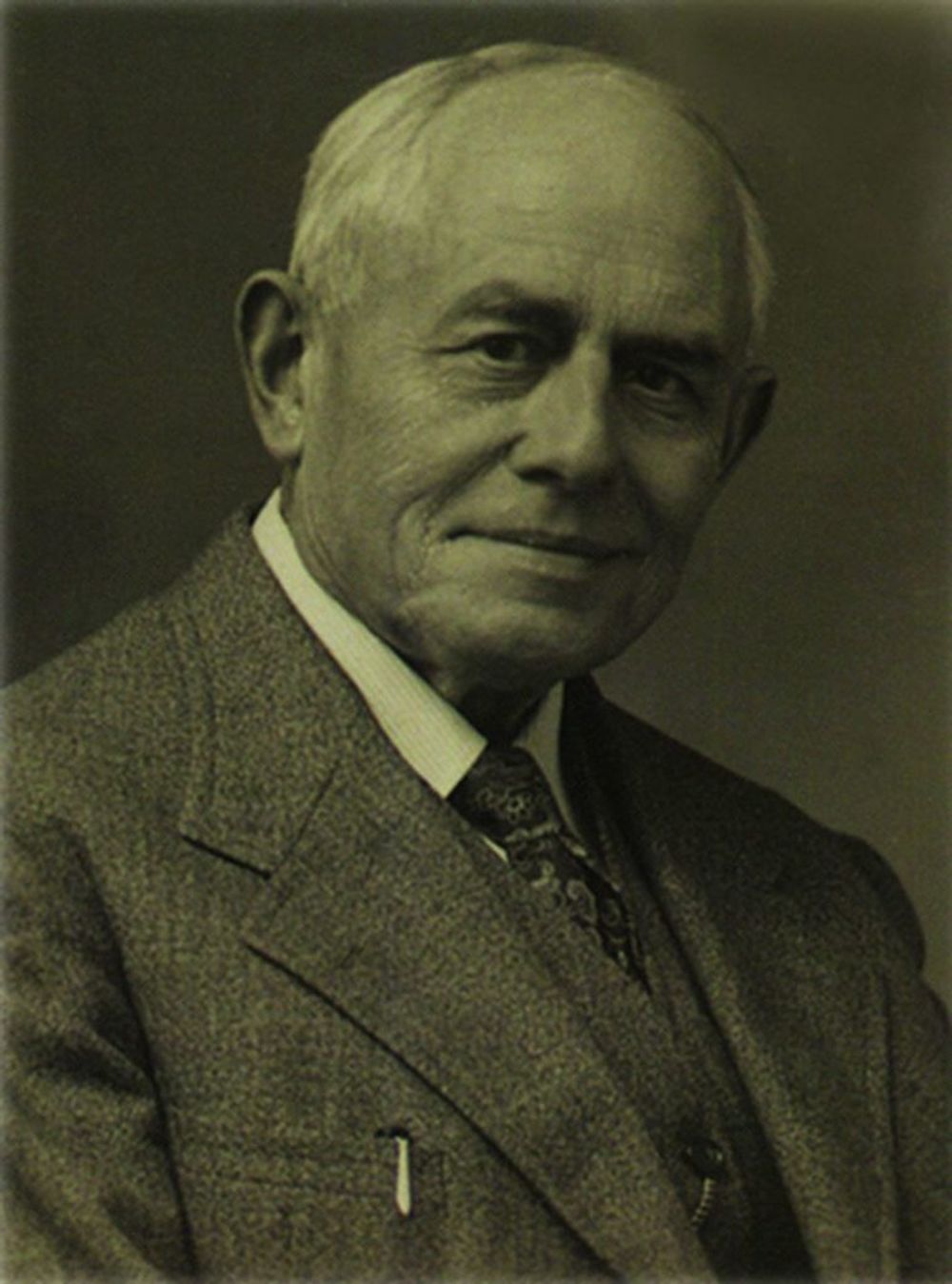
Armand-Raphaël Graser, founder of AR Lenoble, and awarded the French Legion of Honour for heroics in the 1914-8 war
For the last several years, all of us had been looking forward to 2020, a year that was destined to be one of the most memorable in the history of AR Lenoble as 2020 marks the occasion of our centennial. We had been so excited to celebrate 100 years of family ownership and complete independence with friends and long-term distribution partners all over the world. But then the global pandemic known as COVID-19 arrived on the scene, and like so many of you, we’ve had to change our plans.
Nobody has been more affected than Anne: “Obviously the celebrations we had planned to mark the centennial of AR Lenoble had to be cancelled. Beyond my personal disappointment, I regret not being able to bring together our customers and friends to share this moment which also belongs to them. Because it is thanks to their trust and loyalty that we were able to survive for the last 100 years.”
It must be said that infectious diseases have changed the course of human history on multiple occasions since the beginning of time – and sadly, COVID-19 won’t be the last one to invade our world. I’ve found solace trying to remember that although the bubonic plague devastated the world in the middle of the 14th century, it eventually engendered major societal and cultural changes including the birth of empiricism and humanism. Without the bubonic plague, would people have learned to question preconceived ideas? Would they have realised that we must be able to rely on our fellow human beings if we are going to survive in the long-term?
We learned how to be patient a long time ago in Champagne as the wines we craft spend a long time in our cellars before they are released. AR Lenoble just released our Grand Cru Blanc de Blancs Chouilly Vintage 2012 a few days ago after nearly eight years of ageing in our cellars. Last week we bottled our Grand Cru Blanc de Blancs Chouilly Vintage 2019, a wine that most likely won’t see the light of day until the end of this decade. In addition, our region has rebounded from difficult moments time and time again, from Attila the Hun in the fifth century to the Prussians in the nineteenth century. The region was devastated by trench warfare during the first world war, killing hundreds of thousands and destroying nearly half of Champagne’s vineyards. Our region survived the pillaging of the Nazis during the second world war. We have survived just about everything else from countless financial crises to extreme weather patterns. It is in our nature to be patient – and to rebound in due course.
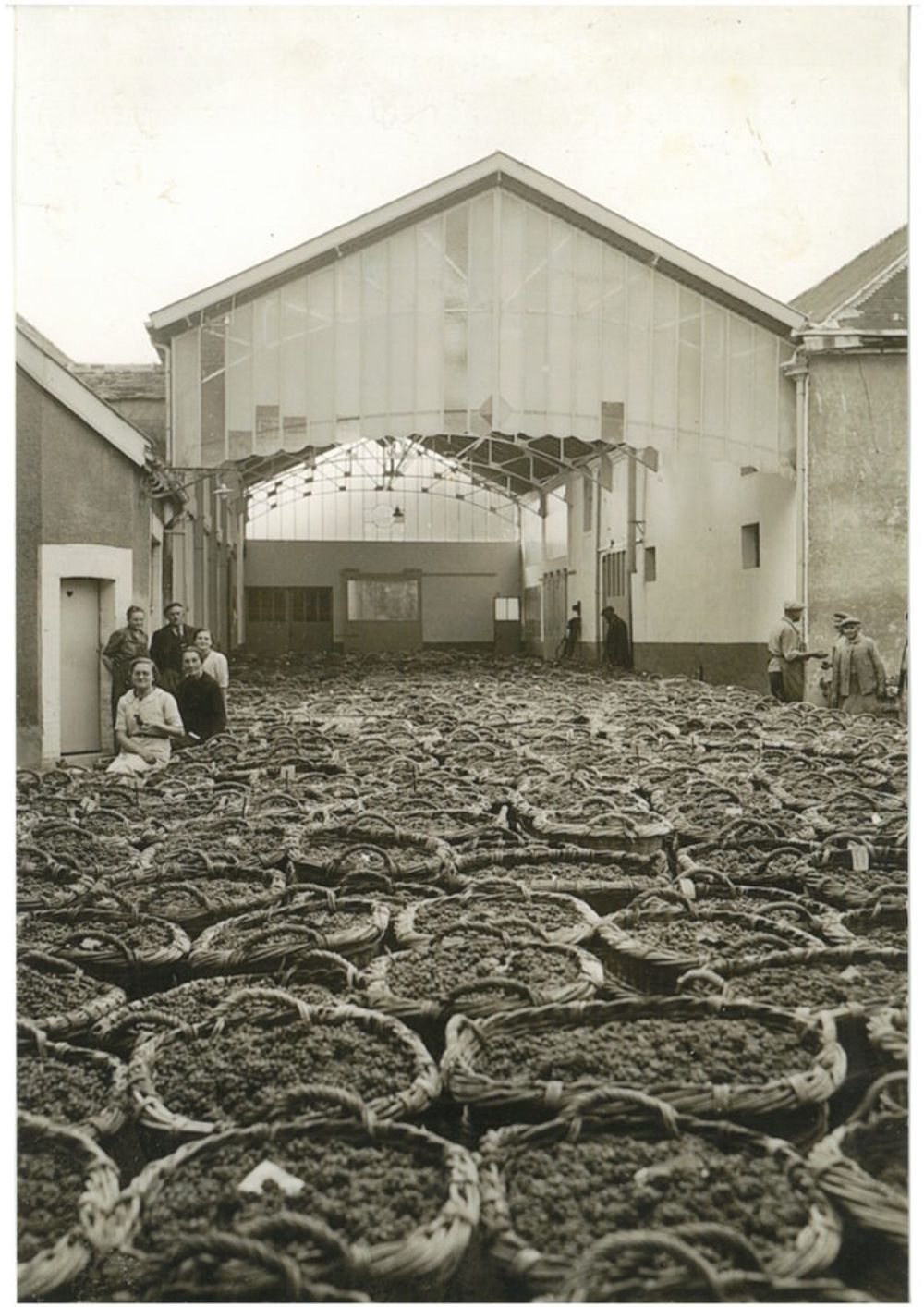
Harvest at AR Lenoble – 1920s
100 years of AR Lenoble across four generations with many hardships
AR Lenoble has not been spared its own hardships over the last 100 years, and the men and women behind AR Lenoble are proof that suffering can eventually yield to self-realisation and progress.
In 1914, Armand-Raphaël Graser, Anne and Antoine’s great-grandfather, was working as a wine broker in the village of Dormans. He answered the call of duty and fought against the Germans for four years, sustaining severe facial wounds but refusing to give up the fight. At the end of the war, he founded Champagne AR Lenoble in the village of Damery – and several years later, he was awarded the French Legion of Honour.
Upon Armand-Raphaël’s death in 1947, his son Joseph successfully raised the profile of AR Lenoble, hosting parties at the estate, and even appointing Murray and Banbury’s in London to be the house’s first UK importer back in the 1960s. Steven Spurrier worked for Murray and Banbury’s at the time, and served AR Lenoble at his own wedding in 1968. But if Joseph was blessed with a strong flair for public relations, he lacked the managerial skills of his father, and upon his retirement in 1973, the house was left with so many debts that none of his children wanted to inherit. The future of AR Lenoble was very much uncertain.
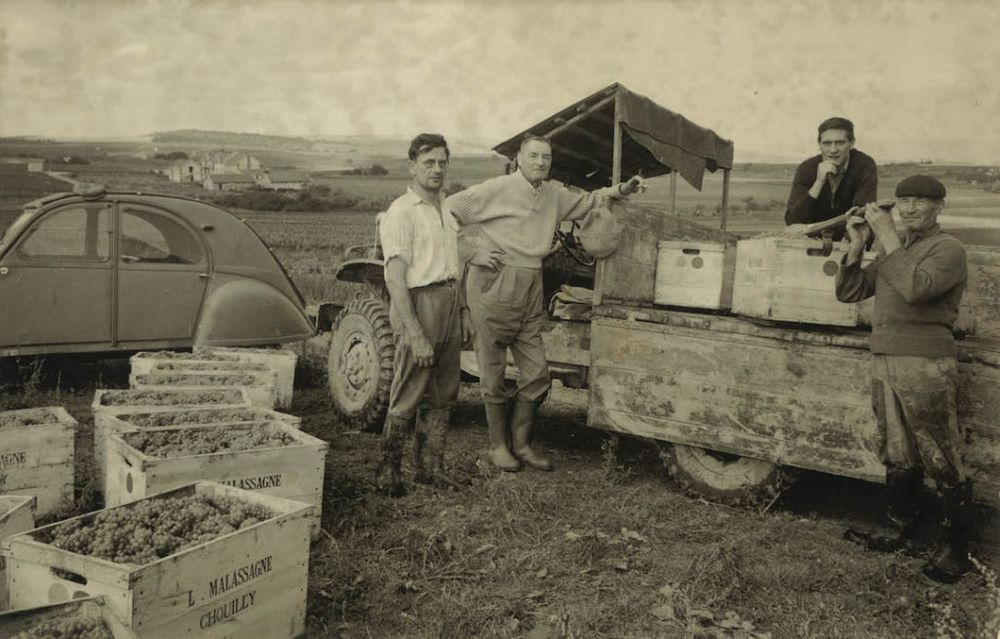
Jean and Leon Malassagne in the vines
It would be Jean-Marie Malassagne, grandson of Armand-Raphäel Graser by his mother Marie-Madeleine, who would eventually step up to keep the estate in the family. The only child of Marie-Madeleine Graser and grower Léon Malassagne, he had grown up in the village of Chouilly on the Côte des Blancs where he worked with his own father in 1950 and 1951, two years marked by harsh winters and cruel frosts. Harvests were very small – the average yield per hectare in 1951 was 2900 kilograms. (In 2019, the average yield in Champagne was 10200kg/ha.)
Deeply affected by his mother’s diagnosis with Parkinson’s disease, Jean-Marie decided to study medicine. At medical school, he met his future wife, Collette, a woman with a story not unlike his own. Collette was the only child of a grower from Bisseuil who decided to study medicine once her mother became paraplegic after being wounded by a bomb during the war. Jean-Marie became an obstetrician-gynecologist and Collette trained to be an anesthesiologist.
In 1973, the two of them established the Polyclinic of Courlancy in Reims, a medical facility that would eventually become one of the most important general hospitals in France, and in that same year Jean-Marie Malassagne took over AR Lenoble as the third generation to run the estate.
Jean-Marie and Collette brought much experience with them to AR Lenoble, as well as their 10 hectares in the Grand Cru village of Chouilly and 6 hectares in the Premier Cru village of Bisseuil, vineyards that continue to serve as the sources for AR Lenoble’s Chardonnay and Pinot Noir today.
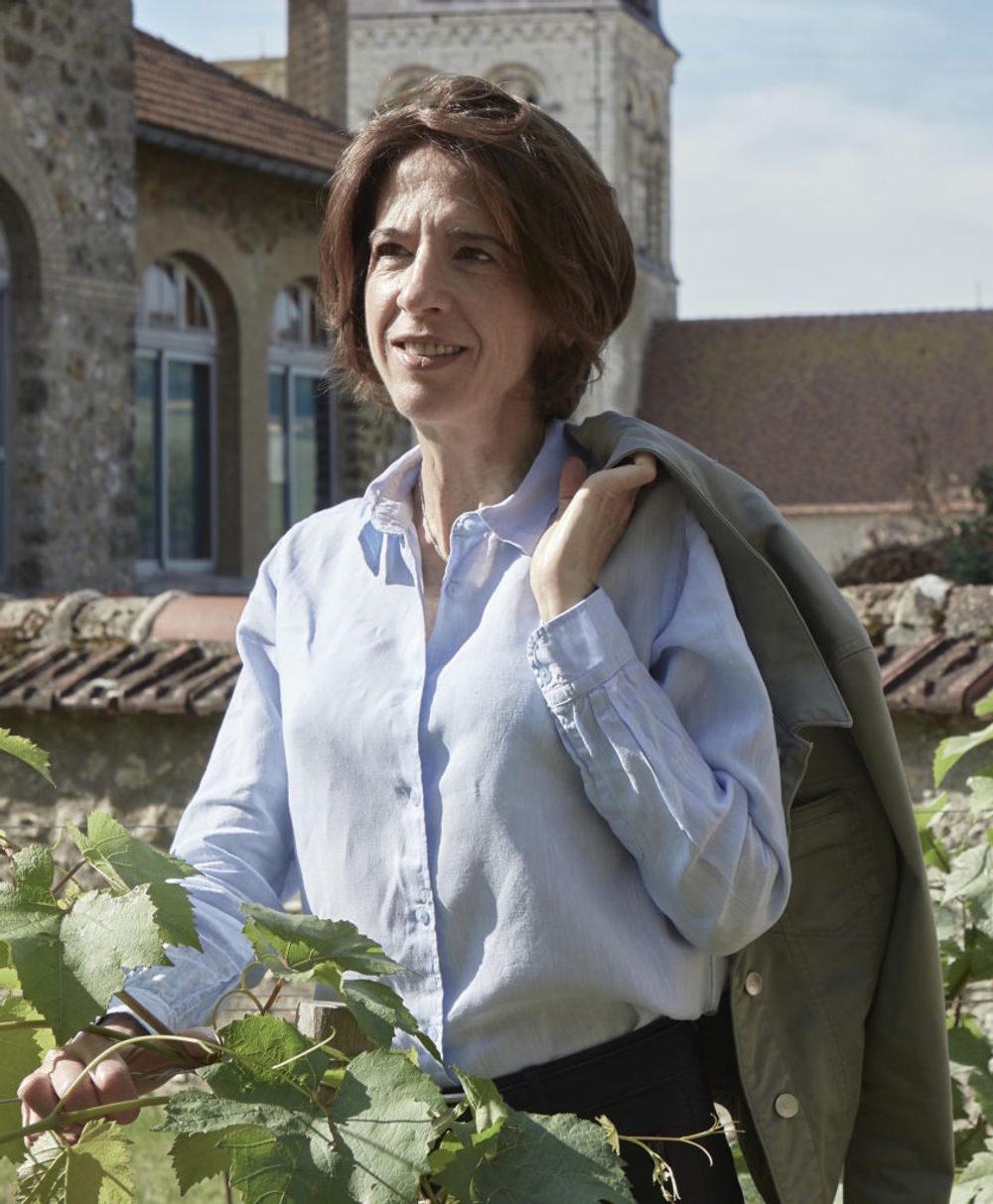
Anne Malassagne October 2019
But if Jean-Marie was a good winemaker, he was a poor salesman, and in 1991, after the Gulf War broke out and plunged the Champagne region into crisis once again, he realised that it might be impossible for AR Lenoble to survive. Like so many of the other family-owned houses at the time, he toyed with the decision to sell AR Lenoble to a large financial group. In 1993, his daughter Anne left her job as a financial controller at L’Oréal in Paris to join him in Champagne. The idea was that Jean-Marie would make the wines and Anne would sell them. But just months after Anne’s arrival, Jean-Marie became very ill and was no longer able to work. Just 28 years old at the time, Anne was left all by herself in Champagne with the keys to AR Lenoble.
The challenge for her was enormous, especially since the wine world was very male-dominated, and gave little credit to women, especially to one who was young and had no experience running a champagne house. But like so many women in Champagne throughout history, Anne realised that her destiny was to take over the house and keep it in the family. Her brother Antoine joined her in 1996, the year that would also become his very first vintage as AR Lenoble’s winemaker. After more than twenty-five years of dedication, Anne and Antoine have transformed AR Lenoble into one of the most respected houses in Champagne.
Taking the Champagne off ice and living in Lockdown
Very few family-owned companies last for 100 years, and after overcoming many obstacles over the last century, AR Lenoble was ready to celebrate in 2020. We planned to have a big party at the house this summer as well as several smaller gatherings throughout the world, from London to Tokyo. None of what was originally planned can come to fruition right now. If even the 2020 Olympics have been postponed until 2021, perhaps we can also postpone some of our plans until next year?
For the last two months, most of the team at AR Lenoble has been either furloughed or is working from home. But life continues in the vineyard and in the cellar. Anne has been working tirelessly to keep the house afloat. Antoine has been spending lots of time in our vineyards. The blends based on the 2019 harvest needed to be decided and bottling needs to take place. Orders for champagne are still being placed – from Paris to California to Taiwan to Luxembourg – and the three of us have spent a lot of time in the cellar disgorging and labelling and getting bottles ready to be shipped.
Most importantly, we’ve been thinking about all of the people who have supported us for so many years who find themselves in very difficult positions right now, especially those people who work in restaurants and wine bars and hotels. We’ve also been thinking about the very long hours that people have spent working in food stores and wine shops around the world trying to feed the rest of us. Many of them have not had the luxury to self-isolate and have been putting their own health at risk so that others can eat and drink wine with their families at home. We’ve been thinking about those people who suffer from depression and anxiety, of those who are facing unemployment, and of those who are helping their children to complete their studies at home in between working and putting food on the table.
Like all of us, we’ve had to find new ways to stay in touch with our friends and customers. We’ve been broadcasting an Instagram Live from @arlenoble every Thursday at 17:00 in French and at 17:30 in English for the last several weeks – and having a lot of fun in the process showing the viewers our vineyards and sharing the stories behind our wines. We’ve co-hosted several virtual tastings with retailers around the world. We’ve done virtual staff trainings for distributor sales teams who are stuck at home and keen to increase their knowledge about the Champagne region. It’s hard not to be able to welcome people here at the estate – and it’s hard not being able to travel to see them either.
The vision to stay independent over the past 25 years
We also took the time to write down the complete history of AR Lenoble since 1920 – and created a small book complete with letters and photos entitled “Carnet des 100 Vendanges” inspired by Armand-Raphaël’s original 1920 harvest notebook. Anne and Antoine have also had time to reflect on how much AR Lenoble – and the world – has changed since they became the fourth generation of the family to take over the house just over twenty-five years ago.
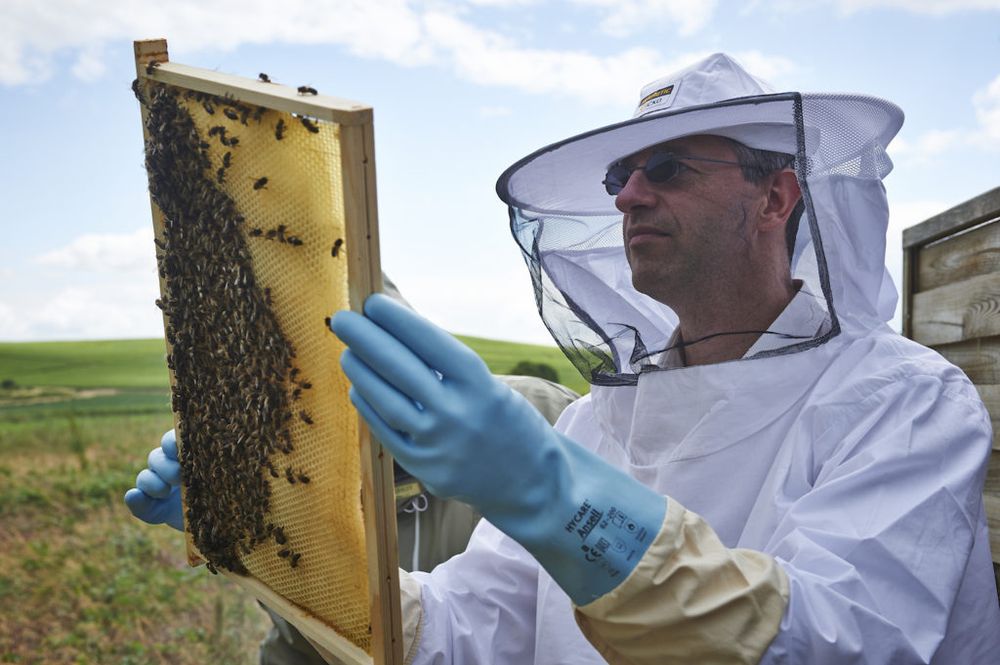
Antoine Malassagne with his bees in Chouilly
Back in 1993, Anne remembers that the world of champagne was starting to change in two very significant ways: “In the early 1990s, the large financial groups began to either acquire or dismantle the independent houses at a very rapid pace. At the same time, the rise of large-scale supermarket chains was creating a demand for large volumes and low prices.” 25 years later both of those realities are harsher than ever. Anne realised that she would need to define a path that could allow her to do something that her neighbours couldn’t do, in spite of the fact that they would always have significantly larger resources at their disposal. “I realised that the only way to do what needed to be done for AR Lenoble to succeed could be done if we remained family-owned and independent. We had to be able to make our own choices regarding quality, we had to maintain our values and convictions.”
With Antoine soon by her side in 1996, the two of them decided that they wanted to limit their production to make wines of character that were based on the unique expressions of our vineyards in the Grand Cru village of Chouilly and the Premier Cru village of Bisseuil. Anne and Antoine soon developed a vision for the exact style of wines they wanted to create, one that would be defined by a subtle balance of aromatic richness and elegance on the finish.
According to Anne, the first releases of the AR Lenoble “mag” series in 2018 represented the fulfilment of her initial vision. “It took 25 years for us to be able to introduce the world to the cuvées I dreamt of back in 1993. The culmination of this dream represents 25 years of hard work, experimentation and investment.”
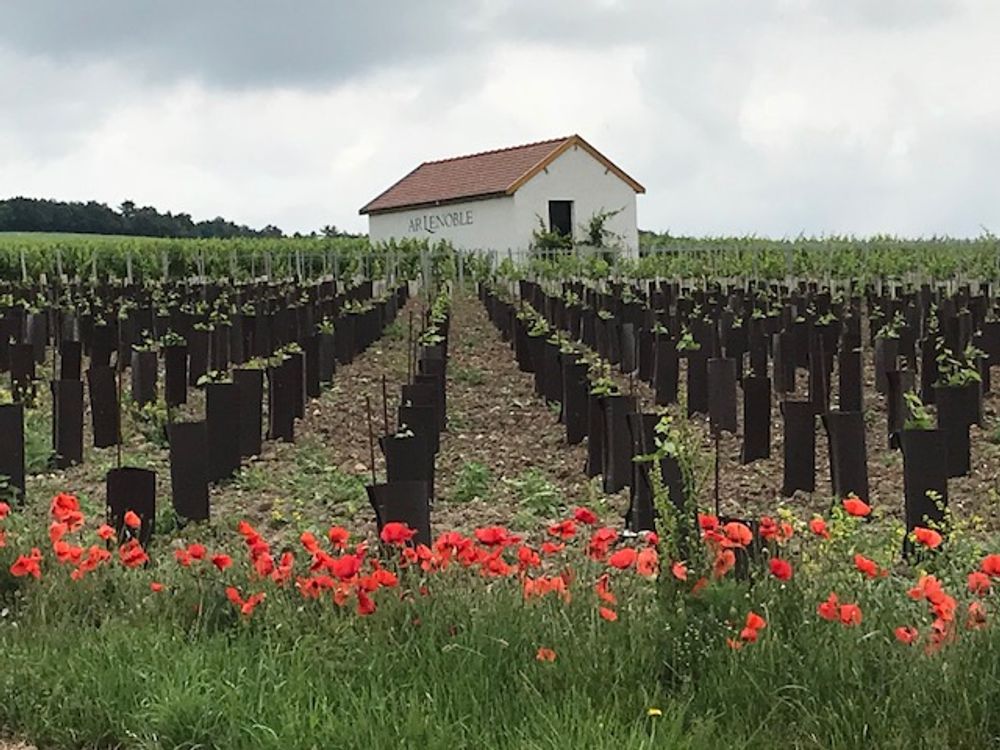
“We have to introduce new kinds of grape varieties. We have to change the way we plant our vines, taller and less dense.”
For Antoine, the last 25 years have also represented a great deal of change. “For me, everything starts in the vineyard. Back in 1996, I realised that I needed to dramatically improve our approach to viticulture. We started by reducing our yields. We then created our own sustainability charter and 16 years later in 2012, we were the second house in Champagne to have our vineyards certified Haute Valeur Environnementale.”
Antoine also recalls how different things are now than they were for his father. “My father was born in 1932. People of that generation had known very lean years in Champagne and most of them greeted intensive farming with open arms as it meant less work for the growers accompanied by high yields. When I arrived in 1996, the only challenge was to get ripe and healthy grapes. Most people were not asking themselves questions about viticulture.” The Champagne region has changed considerably since then with global warming facilitating the ripening of the grapes but resulting in a significant drop in their acidity.
Antoine is convinced that Champagne viticulture must absolutely reinvent itself moving forward. “AR Lenoble has not used herbicides or pesticides for a long time, but the entire region needs to stop using them. We must update certain old techniques like tillage but also introduce new technologies like geo-localisation. The region is seeing more trunk diseases. We have to introduce new kinds of grape varieties. We have to change the way we plant our vines, taller and less dense. We have to work together – and there is much to be done.”
Here in France, we started the initial phase of gradual de-confinement on 11thMay. We can travel 100 kilometres away from home. Hair salons and barber shops are open. We are slowly starting to see other people again, albeit in small doses and in very small groups. The mood is cautiously optimistic.
By the way, there is one way that AR Lenoble will be able to celebrate our centennial in 2020. At the end of the year, Anne and Antoine have decided to release eight exceptional vintages, ranging from 1959 to 2002. Exactly 400 bottles will be released to celebrate 100 years and 4 generations.
During the confinement we received lots of photos from people around the world showing them drinking AR Lenoble at home. On behalf of the entire team, thank you very much for your enduring love and support. We look forward to welcoming you here at the estate as soon as it’s humanly possible to celebrate our centennial in person over a glass of champagne – or two!
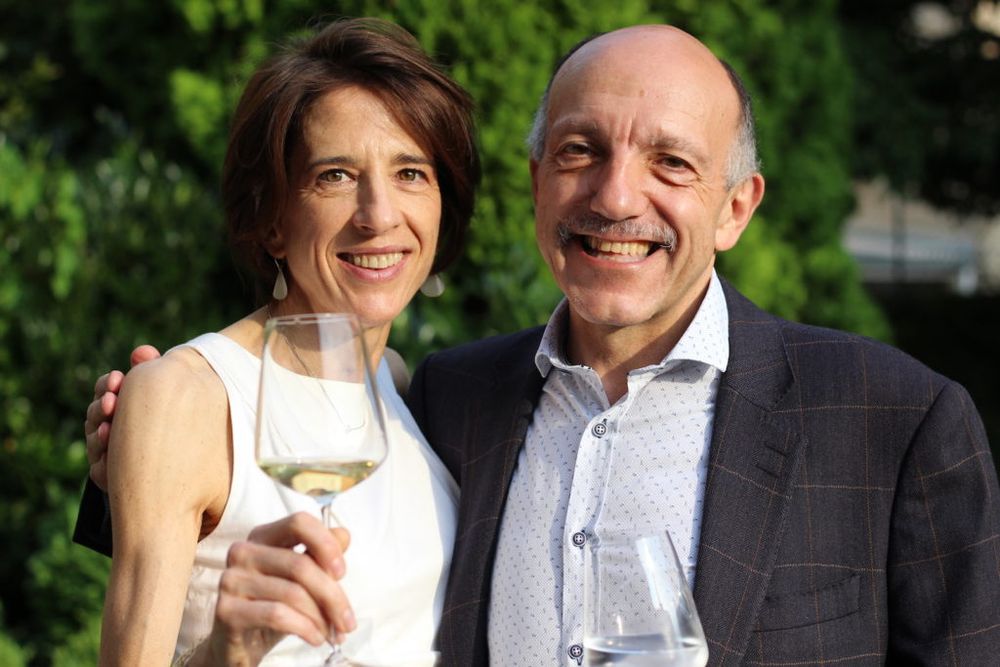
Anne and Gerard Basset MS
